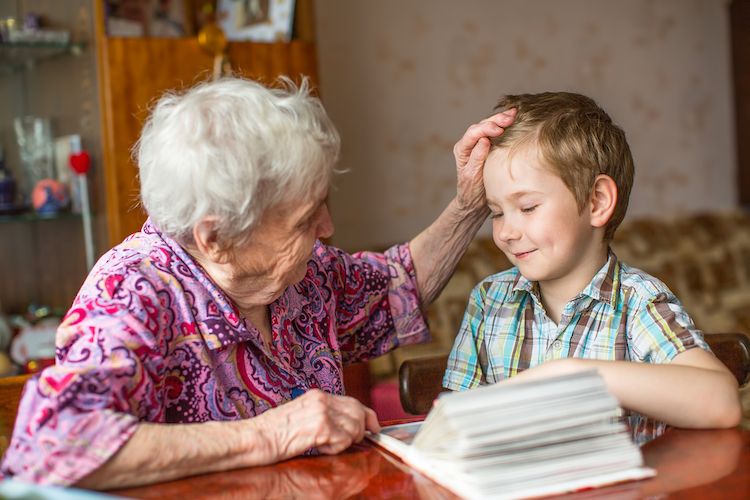Fear of aging is increasingly common today, given the value we place on youth and our increasing preoccupation with looking young, no matter what our age. We know that as long as we’re alive we continue to age every day, but popular culture seems to discourage us from accepting this fact. And yet to deny it is to create unhappiness and dissatisfaction with our looks and ourselves.
Perhaps if we work toward letting go of our fear of getting older and replace it with an appreciation of our life experience and the wisdom it brings, we will begin to place more value on the oldest segment of our population. Looking at an elderly person can be upsetting if we project forward and imagine ourselves with an increased dependence on others for our needs. But if we view that same person as a source of experience and knowledge, getting old might not seem so daunting.
My maternal grandmother lived to be 105. In her early 100’s, she still took a daily walk and knew the name of almost every member of our large, extended family. While she was still alive, it dawned on me at some point that she had witnessed the entire industrial revolution and the rise of the automobile, as well as living through both world wars as an adult. I realized then that in addition to being our beloved family member, she was also a treasure trove of knowledge and experience for those of us who would listen to her stories. As her descendant and – I hoped – the beneficiary of her healthy genes, I thought about how I would like to be treated in my older years. My conclusion came quickly: I wanted to be respected. And the logical next step was that I needed to begin by respecting my grandmother and all of my elders, who by virtue of their years on this earth have a deep knowledge of life and can be a valuable source of wisdom for the rest of us.
Embracing aging will most likely be an evolving process, one that requires continual recalibrating and reminders of the tradeoff. I imagine it will go something like: “Is that really what my eyelids look like now? Sigh. I’m glad that my value lies in more important aspects than my looks.” Aching joints and stronger eyeglass prescriptions do not diminish us. They are simply the new challenges we tackle, replacing the restlessness and insecurity of our younger days.
Many, if not most of us will find that we need some extra support in order to thrive and stay safe and cared for in our older years. Assisted living facilities can be a smart solution to the increased challenges of daily tasks and the risks of living alone. Of course, making the transition to a more supportive type of assisted living can be difficult to accept, especially when one sees other residents who rely on walkers or wheelchairs, or have trouble with confusion and memory loss. It’s seems only natural that for people who aren’t currently dealing with mental or physical deficits, this might arouse a fear of what their future may hold.
Whether or not we face these particular challenges, it is important that we as individuals and as a society come to understand that physical and mental challenges do not define any of us. Each of us has a unique story, and our experiences and gifts deserve to be prized and cherished. If we start by seeing the value in others, then we can begin to see it in ourselves as well, no matter what our age.

